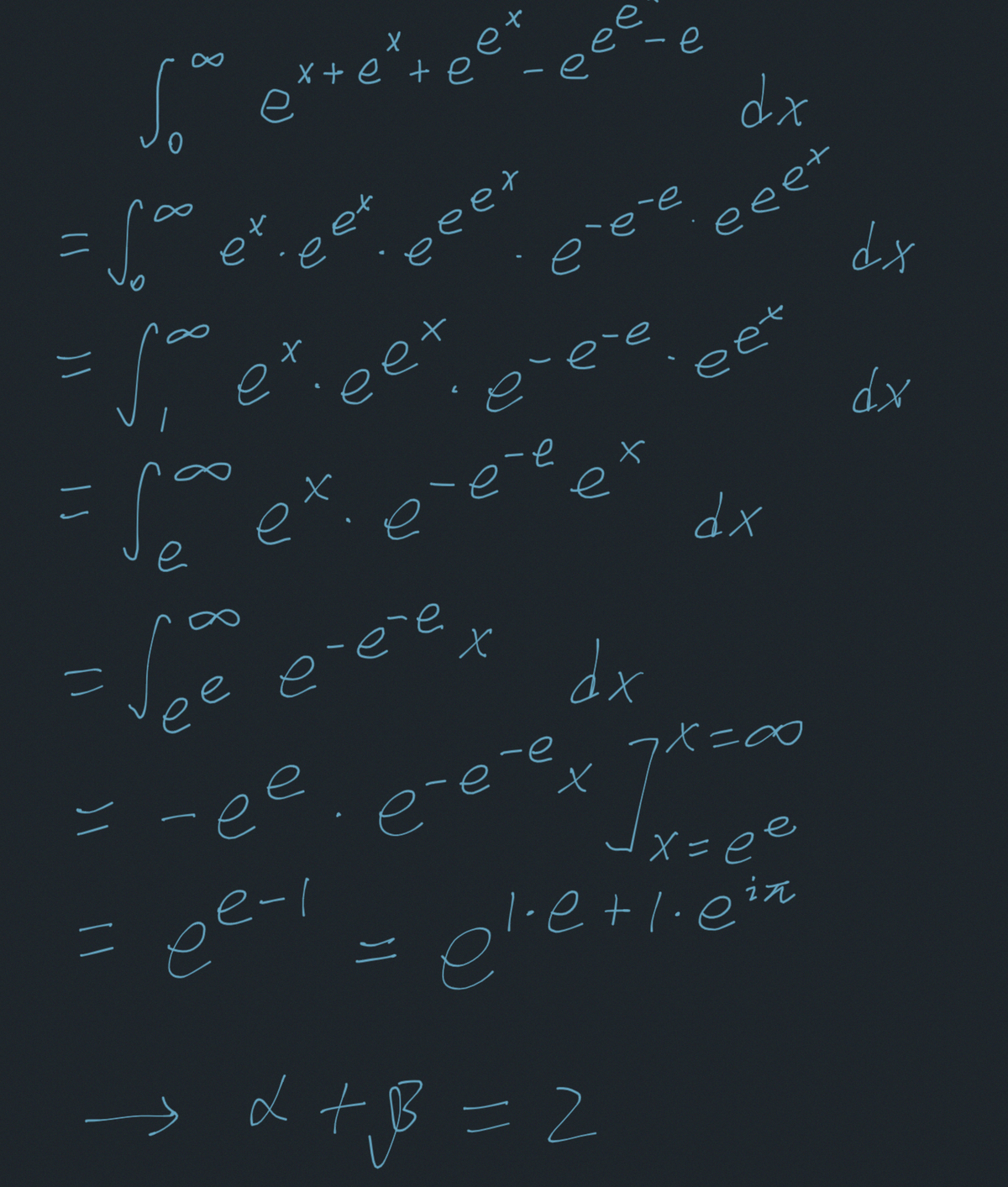“Hideous” Integral
If the value of the integral above can be expressed as , for integers , enter as the answer.
The answer is 2.
This section requires Javascript.
You are seeing this because something didn't load right. We suggest you, (a) try
refreshing the page, (b) enabling javascript if it is disabled on your browser and,
finally, (c)
loading the
non-javascript version of this page
. We're sorry about the hassle.

I = ∫ 0 ∞ e x + e x + e e x − e e e x − e d x = e e ∫ 0 ∞ e e e x + e x + e e x ⋅ e − e e e x − e d x Let u = e e e x − e ⟹ d u = e e e x + e x + e e x : ⟹ I = e e ∫ u = 1 u = ∞ e − u d u = e e ⋅ − e − u ∣ ∣ ∣ ∣ 1 ∞ = u → ∞ lim ( e u − e e ) + e e ⋅ e − 1 The limit at the front tends to 0 because e u on the denominator tends to ∞ as u tends to ∞ , leaving us with I = 0 + e e − 1 = e 1 ⋅ e + 1 ⋅ e i π ( e i π = − 1 ) ⟹ α + β = 1 + 1 = 2